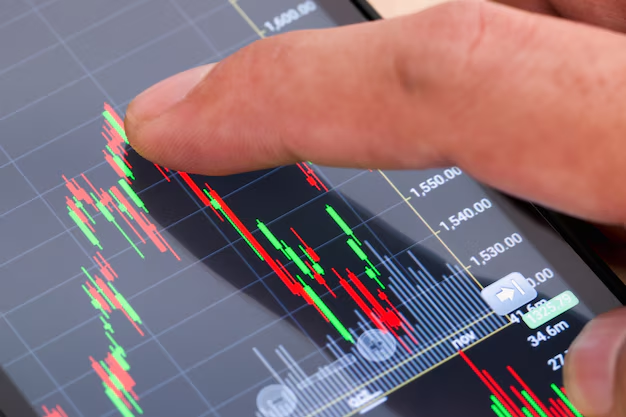Understanding Forex Spreads: The Essential Guide for Traders
In the vast and dynamic world of forex trading, understanding key concepts is essential for aspiring traders. One such pivotal term is Spread. But what exactly does it mean, and why is it so important in forex trading? Whether you're a newbie or a seasoned trader, grasping the intricacies of forex spreads can refine your trading strategy and enhance profitability.
📈 What is a Forex Spread?
The term spread in forex refers to the difference between the bid and ask prices of a currency pair. Every forex trade involves two prices:
- The bid price is the highest price a buyer is willing to pay.
- The ask price is the lowest price at which a seller is willing to sell.
By understanding these two prices, traders can comprehend how spreads work:
- Bid: Price a trader can sell the base currency.
- Ask: Price a trader can buy the base currency.
The spread is essentially the cost of trading. It's measured in pips (Percentage in Point), which is the smallest price change that a given exchange rate can make. For most currency pairs, a pip equals 0.0001.
🔍 Why Do Spreads Matter?
Spreads are crucial as they signify the cost of a trade. A smaller spread means lower trading costs, making it easier to see profits. Conversely, wider spreads mean higher costs, which can eat into profits or amplify losses.
Types of Forex Spreads
Forex spreads can be categorized into three main types:
1. Fixed Spreads
- Definition: Fixed spreads remain consistent regardless of market conditions.
- Benefits: Offers stability and predictability, which is beneficial for traders with tight budgets.
- Disadvantages: Generally higher than variable spreads during normal market conditions.
Tip: Fixed spread accounts are typically favored by beginners due to their predictability.
2. Variable Spreads
- Definition: Also known as floating spreads, these fluctuate based on market conditions.
- Benefits: Tends to be lower than fixed spreads during typical market conditions.
- Disadvantages: Can widen significantly during periods of market volatility.
Tip: Variable spreads are ideal for traders who are adept at navigating volatile markets.
3. Zero Spreads
- Definition: Some brokers offer zero-pip spreads during specific conditions or promotions.
- Benefits: Eliminates trading costs related to spreads.
- Disadvantages: Brokers may charge additional fees or require higher commissions.
Tip: Always read the fine print; zero spreads might come with hidden charges.
Factors Influencing Forex Spreads
Several factors can affect forex spreads, including:
🏛 Market Volatility
When markets are volatile, spreads typically widen. This is because dealers mitigate risks by increasing the gap between the bid and ask prices.
📅 Time of Day
Market trading sessions play a role. For instance, during major sessions like the London-New York overlap, liquidity is high, and spreads are narrower.
💰 Currency Pair
Major currency pairs often have narrower spreads due to their high liquidity, while exotic pairs can have wider spreads due to fewer trades.
📈 Market Liquidity
Highly liquid markets generally have tighter spreads. This is because the high number of participants ensures that there are always buyers and sellers.
How to Optimize Trading with Spreads
Understanding spreads gives traders leverage. Here are some strategies to make the most out of their knowledge:
📊 Monitor Economic Announcements
Economic releases can lead to market volatility. Traders might prefer to pause trading during major announcements unless they specialize in news trading.
🕒 Choose the Right Trading Times
Trading during the peak hours of major forex sessions can result in tighter spreads. For instance, trading the EUR/USD during the London or New York sessions usually offers lower spreads.
🧠 Seek Low-Spreads Brokers
Finding a broker offering competitive spreads can significantly reduce trading costs. It's crucial to compare brokers and read their terms carefully.
📉 Utilize Stop-Loss Orders
Incorporating stop-loss orders can help manage risk when market volatility inevitably influences spreads.
Visual Summary: Key Takeaways on Forex Spreads
Here's a brief, concise visual summary to guide your forex trading decisions related to spreads:
| Factor | Explanation | Trading Tip |
|---|---|---|
| Market Volatility | Increases spread | Consider pausing or using hedging strategies. |
| Time of Day | Affects spread based on session overlap | Trade during major session overlaps for better spreads. |
| Currency Pair | Liquidity affects spread | Focus on major pairs for tighter spreads. |
| Broker Choice | Different brokers mean different spread offers | Compare broker offers and read terms to find competitive spreads. |
| Trading Strategy | Spread types align differently with strategies | Match spread type to your risk tolerance and market approach. |
Finding the Right Balance
Understanding and using spreads effectively can drastically enhance your trading experience in the forex market. While spreads represent a trading cost, they're also an essential tool for understanding market dynamics. Mastering the concept of spreads will empower you to make informed decisions and optimize your trading strategies.
Remember, successful trading isn't just about high-level strategy; it’s about understanding every component that affects your trades. By recognizing how spreads influence trading costs and market behavior, you're better equipped to navigate the vibrant world of forex trading. Stay informed, keep learning, and ensure every step you take in the forex market is a calculated one. Happy trading!

